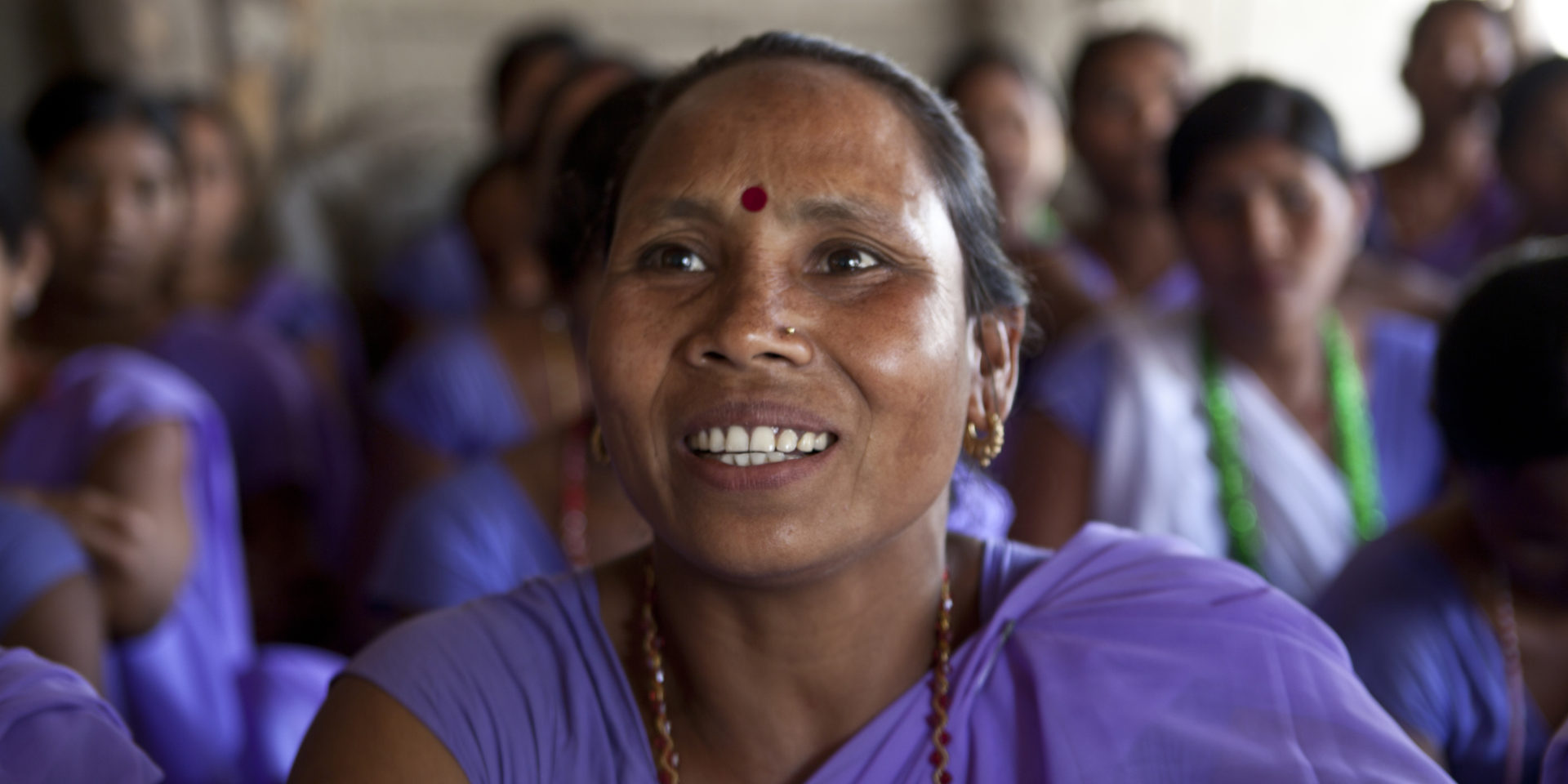
Women’s Economic Empowerment – Beyond the Obvious Benefits
November 9, 2016 | 4 Minute ReadNatalia Buniewicz Foley expands on how the benefits of women's economic empowerment extend far beyond financial gain.
As we explore economic empowerment during the Global to Local campaign and prepare for Global Entrepreneurship Week, we reflect on what it takes to empower women economically. Today, women across the globe still too often face implicit and explicit barriers to full economic participation. As practitioners working for global development, we do right to pause and laud both women who are fulfilling their economic potential through entrepreneurship and the programs that have supported them in their endeavors. For the development community, pursuing women’s economic empowerment means enabling equal access to resources, knowledge, and economic prosperity for women and leveraging their talent, creativity, and determination for economic good. This is a noble goal in and of itself, and the benefits of including all citizens (and, especially women) in development are well-documented. But what about those harder-to-measure impacts that lie beyond financial gain? Just how far then does the impact of women’s economic empowerment reach?
Economically empowered women foster a sense of identity.
French champagne, Argentinian beef, and Belgian chocolate – these fine products are intimately associated with their countries of origin and serve as sources of national pride. In Moldova, a country that gained independence only a generation ago and still struggles with its place in a complex geopolitical environment, citizens are striving to develop locally-made products that could reach similar renown and serve as points of collective pride. Empowering women-led and women-founded enterprises in the apparel sector has helped Moldova take a step in that direction. Joining together under the brand Din Inima: Branduri de Moldova (From the Heart: Brands of Moldova), women entrepreneurs have taken Moldovan-made apparel from a low-cost and low-quality necessity into a runway-worthy product, visibly increasing consumer loyalty and pride in locally-made apparel. Clothing will, of course, not single-handedly strengthen national identity, but the apparel sector’s success has helped foster a sense of national pride and cohesion. Aspiring entrepreneurs and artisans now have a model to draw from as they seek to make a name for Moldovan products globally.
Economically empowered women, with a strong sense of community, can also be an important piece of the puzzle to countering violent extremism. In a place like the Pankisi Gorge area of Georgia, inhabited largely by minority ethnic groups, creating economic opportunity for women allows them to pass on values of inter-ethnic trust and community identity to their children, laying the foundation for the development of a more resilient and stable community.
Economically empowered women serve as climate-change-adaptation champions.
Adapting to climate change requires a willingness to do things differently than they have been done before and an ability to forego short-term gains in favor of long-term ones. In Morocco, women entrepreneurs have demonstrated these traits, recognizing success in their ventures and serving as climate change champions. When soil degradation and water scarcity made it increasingly difficult to make a living in Moroccan agricultural communities, Moroccan women spearheaded shifts in agricultural practices. Women producers switched from growing water-intensive traditional crops to less water-intensive medicinal and aromatic plants; they also began using renewable energy sources. The women are now securing a more sustainable income stream for their families and preventing further desertification through more efficient use of resources. Their entrepreneurial ability to adapt has allowed these women to help their families and help the planet.
Economically empowered women shift gender norms.
It’s human nature: the first time we see something we deem odd, we stop, stare, and gossip about it to our neighbors. The second time we see it, we shake our head and sigh. The third time, we simply shrug our shoulders and move on; what was once odd has become normal. In Bangladesh’s staunchly patriarchal society, historically, women have been discouraged from working outside of the home. But, women pioneers in the dairy sector are now taking on roles such as mobile input providers and artificial inseminators, which is contributing to a shift in gender norms. Women working in these positions have improved daily milk production, increased household incomes, earned women respect for their technical competence, and begun normalizing women’s work outside the home.
Economically empowered women contribute to better health and nutrition outcomes.
Increasing women’s incomes improves food security for children, by increasing the quantity, diversity, and nutrition value of food consumed in households. The same principle applies for women’s and children’s health; in numerous development contexts, a woman will have a hard time taking a day off and travelling to a distant clinic for services while her overwhelming concern remains how to feed her children. When a woman’s livelihood becomes stable because she learns to grow a more profitable crop or obtains financing to expand her business from a local village savings and lending association, she is able to afford more diverse, nutritious foods and take time off of work to seek health care for herself and for her family.
This week, as we continue to explore the meaning of economic empowerment, I am reminded of a woman who grows flowers in western Georgia. Combining her horticultural skills with business acumen, she ingeniously leveraged existing transportation networks, societal trust, and established relationships to grow her business, including using the ubiquitous marshrutka (public minibus) network to distribute fresh flowers around the region. Her bravery and ingenuity, and the bravery and ingenuity of all other women entrepreneurs, are an inspiration. Much progress remains to be made in the years to come, but it’s certain that supporting women such as these in their endeavors is not only the right thing to do – it’s the smart thing to do.
